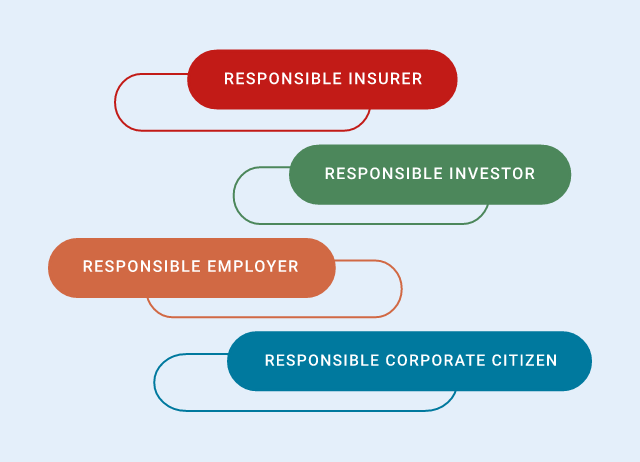15 May 2023
Third edition of SME EnterPRIZE: Generali extends its search for Europe’s most sustainable SMEs
SMEs play a crucial role in the European business sector and make up the backbone of the EU’s production system. To mark the European Day of the SME, Generali has once again launched the SME EnterPRIZE initiative for the third year running
SMEs: small and medium-sized enterprises in Europe
The European Commission defines small and medium-sized enterprises (SMEs) as companies with fewer than 250 employees, whose annual turnover does not exceed 50 million euros, or whose annual balance sheet total does not exceed 43 million euros. There are approximately 23 million SMEs in the European Union (there were 25 million before the COVID-19 crisis), and they play a key role in its economy.
The importance of SMEs for the European economy
SMEs account for 99% of all businesses, employ around 100 million people (providing two-thirds of private sector jobs), and generate around 56% of the Union’s gross domestic product. From traditional manufacturing companies to high-tech start-ups, European SMEs cover an extremely diverse range of sectors and business models.
The impact of the pandemic on European SMEs
Although SMEs form the backbone of the European entrepreneurial system, they are also the most vulnerable to crises due to their limited size. During the COVID-19 pandemic, for example, SMEs faced unprecedented economic uncertainty and hardship, as they were hit hard by supply chain disruptions, employee absences, and temporary closures.
Consequences of the pandemic on SMEs in Europe
In 2020 alone, the number of European SMEs dropped by 1.3%, employment in SMEs fell by 1.7%, and SME added value decreased by 7.6%. Moreover, more than 60% of SMEs experienced a drop in turnover, and about 66% of them postponed committing to investments or downsized their ongoing investments. For part of 2021, SMEs also found it difficult to hire new staff to cope with the unexpectedly strong recovery in demand, and also had to face sharp and rapid price increases of many of their inputs.
The EU strategy for SMEs
In addition to coping with the enormous economic and social challenges of the past two years, SMEs also have to prepare for the transition to a digital and sustainable economy. SMEs are crucial for the success of the green transition in the EU, as they are currently responsible for around 60% of all greenhouse gas emissions by companies. A significant share of SMEs have therefore already started to transition to sustainability, and more and more SMEs are investing in sustainable technologies and acquiring the skills and knowledge necessary to become more sustainable and to remain competitive.
To facilitate this process, in March 2020, the EU presented an SME strategy for a sustainable and digital Europe, which aims to turn Europe into the most attractive place to start a small business and enable its growth and expansion. The strategy is based on three pillars:
- enhancing capacities and supporting the transition to sustainability and digitisation;
- reducing the regulatory burden and improving market access;
- improving access to finance.
The updated industrial strategy, presented in May 2021, also focuses on the consequences of the COVID-19 crisis and the specific situation in which SMEs find themselves, although it does not include a formal update of the SME strategy.
Generali’s SME EnterPRIZE initiative
On May 12th, Generali celebrated the European Day of SMEs launching the third edition of SME EnterPRIZE, extending its search for Europe’s most sustainable SMEs to boost a culture of sustainability in SMEs in order to build a green and inclusive European economy.
What is SME EnterPRIZE and how it supports sustainable SMEs
SME EnterPRIZE is Generali’s initiative aiming to promote a culture of sustainability among European SMEs. It has the goal of inspiring SMEs to develop sustainable business models and stimulating public debate on the topic while recognising the “Sustainability Heroes”: entrepreneurs who have implemented notable sustainability initiatives in their businesses and who can become an inspirational model for others to follow.
The initiative includes the publication of a White Paper, promoted by Generali and produced by SDA Bocconi – School of Management Sustainability Lab, which explores the progress small and medium-sized businesses have made in implementing sustainable business models, the challenges they face, and what the wider policy-making and financial communities can do to create a greener and more inclusive economy.
The third edition of SME EnterPRIZE
This year’s edition, the third one, will involve SMEs from ten EU countries - Austria, Croatia, Czech Republic, France, Germany, Hungary, Italy, Portugal, Slovenia, and Spain – highlighting best practices across two categories: Environment and Social.
In addition to the partnership with SDA Bocconi – School of Management to produce the updated White Paper, Generali collaborates with European Entrepreneurs CEA-PME, the largest confederation of voluntarily associated small and medium-sized enterprises, to further reinforce the sustainability, competitiveness and innovation of European SMEs.



